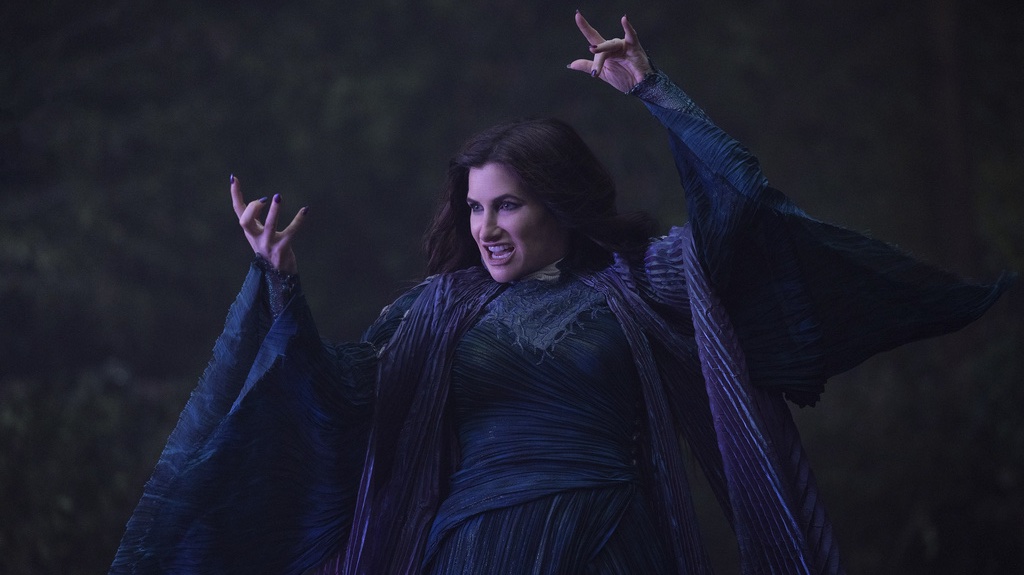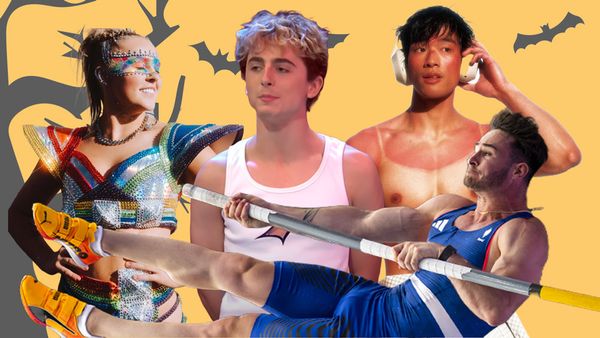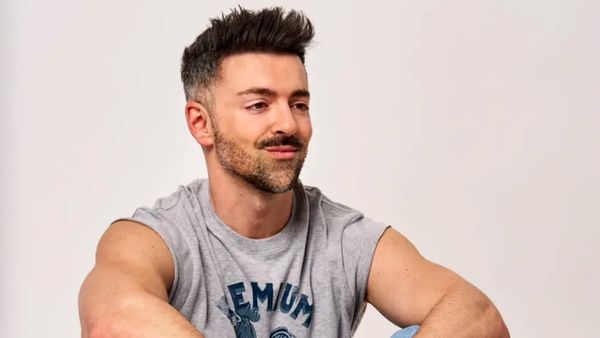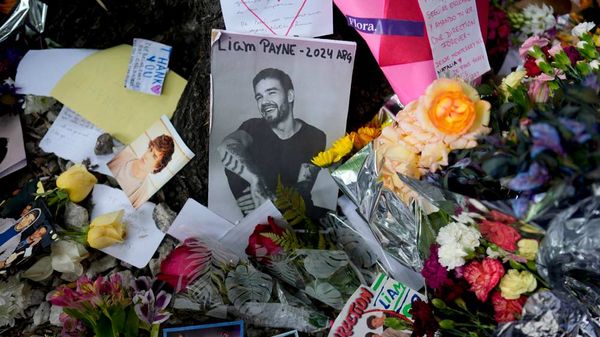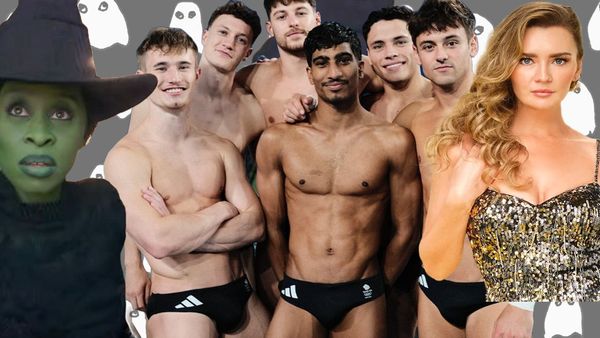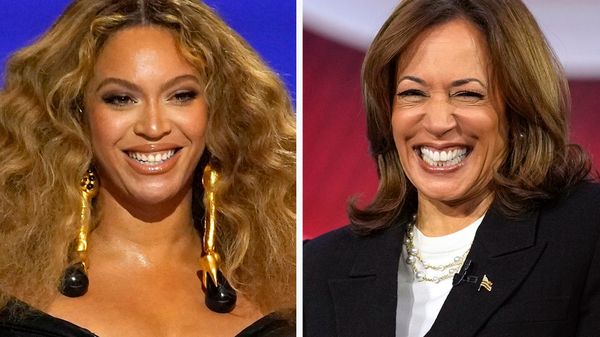May 22, 2008
Marriage: The final frontier
Michael Wood READ TIME: 5 MIN.
Chatting with actor George Takei about California's marriage victory
In his most iconic role, stage and screen actor George Takei played Lieutenant Sulu on the legendary TV show Star Trek. With its intrepid, international, multi-ethnic crew, the program offered a vision of an Earth united in peace; a bold vision of hope and progress in the turbulent 1960s. In the wake of the California marriage victory, Takei is once again in the vanguard of progress. The same day the California Supreme Court overturned the gay marriage ban, Takei announced his plans to wed his partner of 21 years, Brad Altman. Bay Windows was delighted to speak with Takei about his wedding and the prospects for a California ballot initiative.
Q: Congratulations on your engagement.
A: Well, thank you. And thank you, Massachusetts, for leading the way. We now are bookends for America.
Q: I think the California victory will be a tipping point for marriage equality in this country.
A: I think so. Our state is open to people from other parts of the United States coming here to get married, and I'm sure that married couples will then go back to their states and challenge their states. Ultimately, it's got to be on the federal level, so that we have equality in all the laws: taxation, inheritance, social security, all those other laws.
Q: And not to diss on my home state, but I think California also brings the advantage of having many gay couples who are very visible.
A: That's not dissing. That is a factual statement, I think. There are more publicly visible people here in California that will be getting married.
Q: What's the mood like in LA right now?
A: Oh, it's joyous. Ecstatic. However, we're also girding our loins because as you know, those opposed to same-sex marriage have been gathering signatures over the past few months. They've collected roughly 1.1 million signatures, and this will probably qualify as a proposition on the November ballot.
Q: How do you see that fight going?
A: I'd like to think the majority of Californians are fair minded. And with these marriages happening, there's another issue added on. Those that want to rescind the Supreme Court's ruling are going to be taking away something that people have. Before, that was not so. They would be doing a destructive thing, taking marriage away from families. So I think that people like Ellen DeGeneres and myself announcing that we're going to get married, this is just the beginning. And I think fair minded straight people will begin thinking about the issues here. For most people it's not part of their lives and so they don't think about it. But now with all the ink and airtime, people will be thinking on the issues, and in terms of equality. Before, I think the GLBT community was stereotyped. But now they are recognizing that we are bankers, doctors, lawyers ... we're the entire spectrum of society. And we're literally members of the family: brothers and sisters, sons and daughters, aunts and uncles.
Q: And we're just doing what everyone else does, forming our own families.
A: And the principal ideal of the United States is that all men -- and I use the word men generically -- are created equal. That was the shining ideal on which this nation was founded. But in fact the great men who articulated those ideas kept other human beings as slaves. And over the years, one after the other, those laws and prejudices have been overcome, and we're getting closer and closer to the fundamental ideals of this country. Most of the opposition seems to be coming from the faith-based arena. And the majority of those people are fair, loving people. When they stop to think about it, they will not want to be party to something discriminatory or damaging. That's what slavery was, that's what inequality to women was ... all these prejudices that we had are seen as antique and regrettable chapters of American history, and I think that's what's going to happen soon with the sexual orientation issue.
Q: So you're optimistic about defeating the ballot initiative.
A: I am. The latest polling shows that 43 percent oppose same sex marriage in California and 44 percent support it. So it's not a majority on either side, but we are gaining and those that oppose are declining. And we have half a year to mount a vigorous education campaign.
Q: Will you be campaigning?
A: I most certainly will.
Q: To change the subject, and if you don't mind me asking: who proposed?
A: Well I was planning on it, but Brad beat me to it!
Q: I love that statement on your website that the thought of planning your wedding is "delicious." Have you made any plans yet?
A: Well, Brad is from Arizona, so we're going to Arizona for the wedding rings. They're going to be turquoise and silver. But we're still wrestling with everything else ... where to have it, how to design the ceremony. We're gong to be creating our own unique statement of our love for each other. I'm a Britanophile, so I want to use bagpipe music.
Q: This may sound corny, but I like to think that Gene Roddenberry [the creator of Star Trek] would approve of all this.
A: Oh, absolutely. The core value of Starfleet was "infinite diversity in infinite combinations." He was mindful of the diversity of sexual orientation, just like political heritage. You remember we had a Russian crewmember [on Star Trek], and that was at the height of the Cold War. I discussed it with him. He said he could not work it into Star Trek at that time, because our ratings were low and we had to stay on the air to send out the message that we did send out.
Q: I knew that Gene Roddenberry wanted to have gay characters on Star Trek: The Next Generation, but I had no idea he was thinking about this in the '60s.
A: Oh, yes. Gene was sophisticated and visionary. But the show had to stay on the air to make the statements he did make, about diversity and against the war. That was an issue he wanted to deal with when we were on firmer ground.
Q: It's such a shame that Star Trek drifted away from that vision after his death.
A: That's right. It did veer significantly from his vision. Deep Space Nine went into the darker aspects of humankind.
Q: While we're talking about your career, can you tell me if you'll be back on Heroes next season?
A: You know, after I fell to my death off that high-rise building, I reappeared twice. So there you are. Nothing is as it seems on that show.
Q: Hmm. I guess you're not going to tell me what Nakamura-san's super-power is.
A: In fact, they have not told me. They keep us in ignorance so that spoilers don't slip out. For example, when I first got cast I thought I was just playing a leader of Japanese industry who wanted his son to follow in his footsteps. Subsequently I discovered there is much more to Kaito Nakamura. I told Tim Kring that I thought I played my first few episodes wrong. He said, that's all part of the plan.
Q: Well I wish you the best with your plans. Again, congratulations!
A: Thanks, it's been a pleasure.
Michael Wood is a contributor and Editorial Assistant for EDGE Publications.
